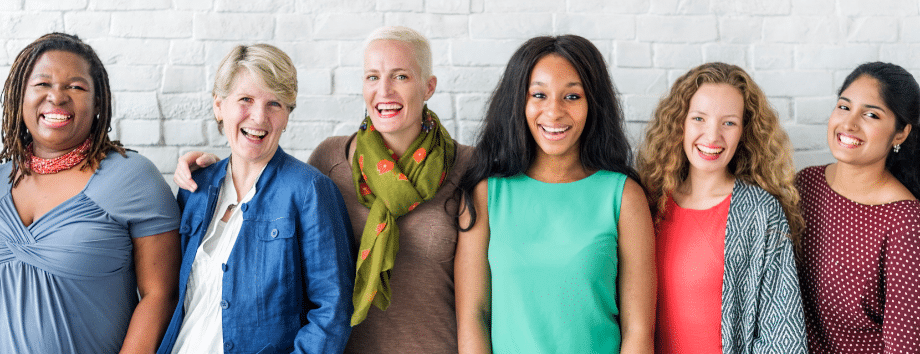International Women’s Day: A Russian-Speaking Perspective
February 20, 2024 | Israel & Global, Jewish Traditions and Values

Blog written by Jenny Turniansky
It’s March 8th, you turn on your phone and you see online that it’s International Women’s Day. You contemplate sending a text to the women in your life, or maybe you’ll post something on Facebook. At the end of the day, it’s just one of those Hallmark holidays that they invented to sell cards, right?
For me, the holiday is more than another day on the calendar. Both of my parents were born in Kiev, Ukraine in the 1960s. Growing up we spoke Russian at home and celebrated many of the same holidays they did growing up. Like any immigrant parents, they wanted us to have Ukrainian values, but American opportunities.
In my small southern Maryland town, we were the only Russian-speaking family in the entire county. Although I had been born in the US, I was reminded each day how different we were from the rest of the community. My neighbors and fellow schoolmates had only Boris and Natasha from Rocky and Bullwinkle as a reference. In contrast, my own education was more nuanced. I was taught to question authority and think critically about the world around me, and so I noticed from a young age how differently boys and girls are treated in this world.
Women’s Day is a global holiday that was first started in the early 20th century by the Suffragette Movement and by socialist parties in both North America and Europe. There are reports of many proto versions, but most historians agree that the holiday was first proposed at the 1910 International Socialist Women’s Conference. After a unanimous vote, International Women’s Day was born. These women at the conference were pushing for some other revolutionary ideas, such as an 8-hour workday, proposing that pregnant women stop working 8 weeks prior to giving birth, and 8 weeks of paid maternity leave (must be nice). These policies were to be established universally to all women, to help mothers return to the workforce and to compensate for the essential non-paid work that kept society functioning.
It wasn’t until women gained the right to vote during the Russian Provisional Government on March 8th, 1917, that Women’s Day became a national holiday. In 1965, the USSR formally declared Women’s day as the non-working day, “ in commemoration of the outstanding merits of Soviet women in communistic construction, in the defense of their Fatherland during the Great Patriotic War, in their heroism and selflessness at the front and in the rear, and also marking the great contribution of women to strengthening friendship between peoples, and the struggle for peace.”
Women’s day remained a predominantly Communist holiday until 1965, when it was picked up by second-wave feminism as a day of activism calling for equal pay, equal economic opportunities, reproductive rights, subsidized childcare, and prevention of violence against women. In 1977, the United Nations proclaimed International Women’s Day an official holiday, to advocate for women’s rights and honor the often-silent role that women play in history.
Today, International women’s day is commemorated globally, and in much of the world it is customary to give women flowers and confectionaries while advocating for legal reform. In Italy it is customary to give yellow mimosas, as roses and violets were often too expensive and not widely available in rural, working-class communities. In Ukraine and in Russia, work and school are off; the holiday has mostly lost its political roots but remains an important expression of appreciation for women. In China, employers are encouraged to give women a half-day at work. In Pakistan, India and many Latin countries, parades are organized in honor of women and to rally for social reform.
In the United States, however, the holiday is treated much like any other day. In my experience, US women are missing out. As the child of Ukrainian immigrants, I remember being gifted flowers by the men in my life. I would gather at the lunch table and hear the older ladies share stories of the achievements of generations of women. Like any conversations with expats, there was a dark undercurrent, a reminder that any triumph does not come without its tribulation.
It’s crucial to recognize that gender equality is not just a women’s issue; it’s a societal imperative. Men and boys must be allies in this fight, using their privilege and influence to dismantle patriarchal structures and create a more just and equal world for all genders. Honoring women is a Jewish value that has merged my secular upbringing with my Jewish observance. Today, as a Jewish woman, every Friday night I listen to my husband singing the traditional song, Eshet Chayil– A Woman of Valor, but we cook for Shabbat together. Women’s day is more than a holiday to celebrate the contributions that women have had, but a day to plot the journey forward towards equality.